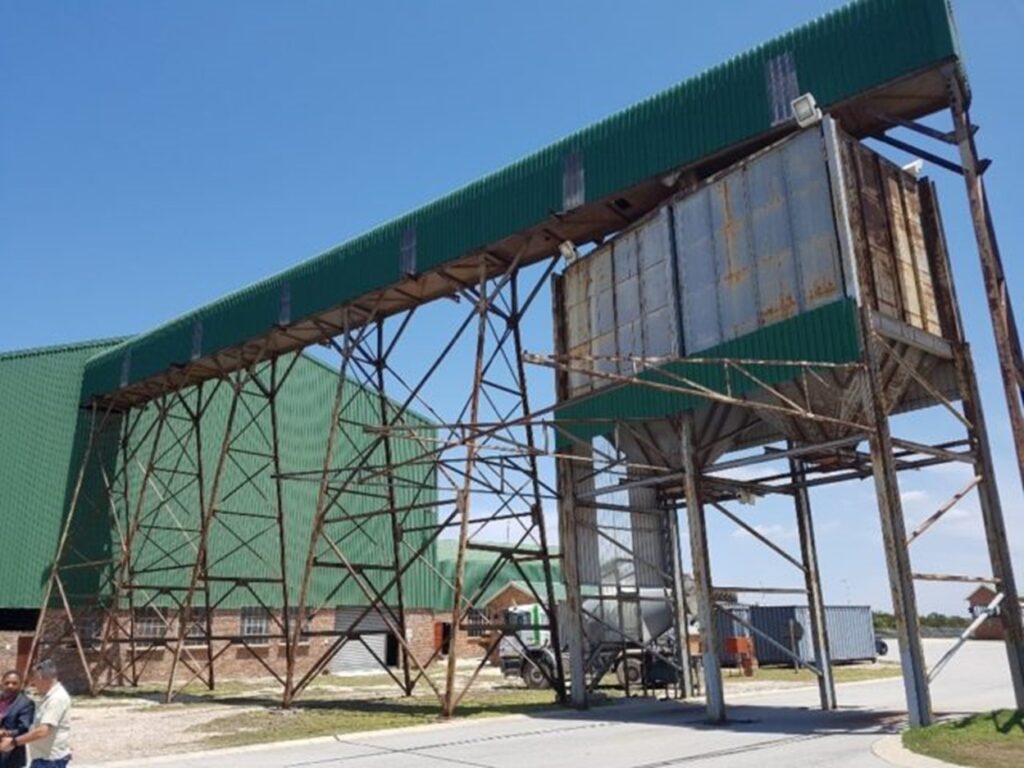
In an exclusive interview in Africa’s Power Journal ESI Africa, Emiel Hanekamp, senior consultant at Partners for Innovation – one of the shareholders of the Coega Biomass Centre and one of six companies involved in the public-private partnership (PPP) with the Dutch government, Netherlands Enterprise Agency and the Embassy of the Netherlands – shares his insights on the new ‘Coega Biomass Centre’ and the biomass opportunities in South Africa.
Can we start with some background on this project? Tell us more about the partners and their speciality?
In summer this year the mothballed pellet factory at Coega Development Zone near Port Elizabeth has been taken over by Hive Energy (a UK based international developer and operator of renewable energy projects), iLive Sustainable Development (a South African project development company within the waste-to-energy and bio-energy space) and Partners for Innovation (a Dutch-based international sustainability consultancy and project development company). These three partners are committed to refurbish the pellet factory and get it operational again in the course of 2021. The aim is to develop a profitable business but also to realise positive local socio-economic and environmental impacts. The new name of the factory is ‘Coega Biomass Centre’.
Why was South Africa chosen for this biomass production investment?
South Africa is a logical choice as all partners have been active in South Africa for many years with developing sustainable biomass and/or energy value chains. Also, South Africa is one of the African frontrunners in mitigating climate change. Forestry is a major industrial sector.
The enormous amounts of woody biomass residues from forestry and sawmills offers an excellent opportunity to contribute to climate goals. In addition, the fight against exotic trees – amongst others via the South African Working for Water programme – guarantees another substantial biomass flow.
Since there is already a factory for the production of clean fuel pellets in Port Elizabeth, it made sense to invest in this facility. Depending on the usage of the wood pellets, the Coega Biomass Centre will account for up to 200 thousand tonnes CO₂ equivalents annually.
What are the opportunities in this sector for South African companies and municipalities?
Municipalities can valorise the wood residues from their gardens and parks that otherwise end up in overcrowded landfills. The collection of wood residues, especially the AIS clearing, and the pre-processing and transportation of this waste creates many local jobs. This is apart from the jobs created at the pellet factory itself. In total approximately 900 jobs will be created in Nelson Mandela Bay area.
If locally used in gasifier cookstoves, the wood pellets produced by the factory can provide up to 48,000 households with clean and affordable household energy.
Coega Biomass Centre is first in a row, as our ambition is to start similar initiatives in South Africa. We expect to launch new initiatives for biomass residues beneficiation in the course of 2021. For South African companies, this means investment and collaboration opportunities in a solid infrastructure, creating new sustainable business models in a promising and expanding market. In addition, they can profit from a long-term collaboration with European companies and investors.
What is the potential contribution to economic growth and job creation?
We have calculated that restarting the pellet factory Coega Biomass Centre, will create approximately 100 direct jobs and 800 indirect jobs. Building and operating other factories would create a multitude of jobs.
We expect that beneficiation of biomass residues offers interesting investment opportunities in a solid infrastructure for South African and foreign companies, contributing to sustainable economic growth.
The consortium acquired a pellet factory in July 2020, how is the project progressing?
In the last few months we have executed a detailed technical due diligence of the factory and are in the process with technical service providers about the refurbishment of the factory. In addition, we have held interviews with new staff to be appointed. We expect that the plant can be operational again quickly and without much effort, restarting the production of white pellets in the summer of 2021, upscaling to full capacity by the end of 2021. These white pellets are perfectly suited to be burned in clean cooking devices, in industrial furnaces for steam and power and as a substitute for coal to produce electricity.
The consortium is researching the feasibility and viability of introducing an innovative drying and torrefaction technology. With this technology the plant will be able to also produce black pellets. Black pellets have a number of advantages over white pellets, especially when transported over long distances. In addition, the feedstock used to produce black pellets is less critical than for white pellets.
This will allow us to beneficiate biomass residues – such as forestry residues – that would otherwise be left in the field to rot, producing methane which has a 25 times higher GHG impact than CO₂, or municipal garden and parc residues being landfilled. We are currently researching the feasibility and viability of such an installation with an expected investment of 45 million ZAR.
How big is the investment that has been made in the country thus far?
In total, the partners will invest R50 million (€3 million) in the first phase; the acquisition, refurbishment and recommissioning of the factory. Further investments in the factory are expected in the near future. For example, the investment in the drying and torrefaction technology and its integration in the existing plant is expected to be around R45 million.
You are presenting a masterclass about the biomass opportunities in South Africa at the upcoming Digital African Utility Week on 25 November, what will be your message at the event?
Beneficiation of biomass residues holds major potential for South Africa in terms of waste minimisation, job creation, CO₂-reductions, and clean, secure and affordable household energy. We are looking for collaborations with municipalities and local companies to actually make this happen. The pellet factory in Port Elizabeth is the first concrete example and the result of our efforts. Off course, we are looking for profitable business opportunities but only if we can guarantee the local socio-economic and environmental requirements are met.
This pellet project has been initiated by a Dutch public private partnership focused on beneficiation of solid biomass waste in South Africa, that started on 1 November 2019. This PPP consists of 6 Dutch companies working together with the Dutch government. They are aligned in their ambition and approach to contribute to sustainable economic growth, that will benefit South Africa, the Netherlands, and in fact, the whole world.
The Dutch government supports not only the 6 companies in their ambitions but also South African governments, both federal and local. For example, recently a knowledge platform on sustainable biomass use has been initiated, together with the SA Department of Environment Forestry and Fisheries.
Anything else you would like to add?
Beneficiation of biomass residues has huge potential for South Africa in terms of contributing to a more sustainable and green economy. However, developing new biomass beneficiation value chains is not easily and quickly realised and requires long-lasting cooperation’s between business, government and local communities. Municipalities and companies that are interested in the opportunities and are ready to take up the challenge are invited to contact us. We are ready to start new initiatives.
The entire operation will adhere to very strict sustainability requirements, with the final product being certified according to European and/or Asian sustainability certification scheme(s). The choice of the scheme depends on the client but will include the entire value chain of the product.
Annemarie Roodbol is Senior Communications Manager at Clarion Events Africa based in Cape Town
